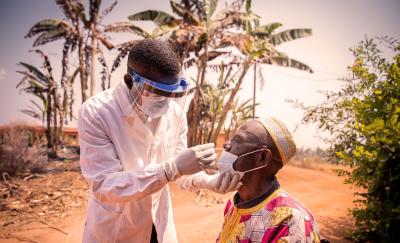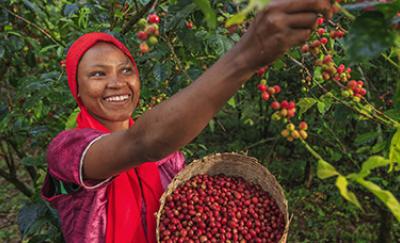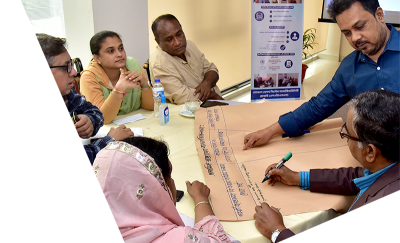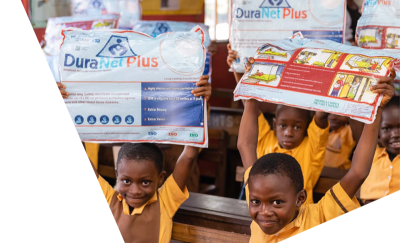Collaborative, Locally-led Campaign Reaches More Than 180,000 With Lifesaving COVID-19 Vaccines


COVID-19 strained health systems worldwide, that we know. Two years later, what we can also see is how the pandemic catalyzed opportunities to strengthen health care by mobilizing leadership and resources around common goals.
In many countries, COVID created the urgency needed to codify protocols and find efficiencies where, previously, there wasn’t a mandate to coordinate across health service delivery, supply chains, the health workforce, or disease-specific programming. Abt programs worldwide responded to the pandemic with a long-term view of greater systems change.
In Mozambique, where one in eight adults is living with HIV, maintaining continuity in clinical HIV services was a top priority—as well as protecting the providers delivering these services to an immunocompromised population also at greater risk from COVID exposure. The Abt-led USAID-funded Efficiencies for Clinical HIV Outcomes (ECHO) project immediately expanded its scope, as the government and Ministry of Health also mobilized to address the novel virus.
To start with, COVID-19 made it clear that health workers across programs needed to practice the same infection-prevention protocols, have access to personal protective equipment (PPE), and that they would need to identify new ways of delivering the same care to people living with HIV. ECHO, a five-year program only six months in at that point, immediately responded by procuring protective materials for health workers and transporting medicines along the project supply chain.
Everyone’s immediate concern was reducing COVID-19 transmission in health care settings. It was essential to adapt and streamline patient flows to reduce transmission without limiting access to services--during maternal health or HIV testing visits, for example. So on the frontlines, ECHO set out to train health providers to better diagnose and treat the disease, as well as manage patient cases at isolation centers. The project also supported research efforts by participating in the Ministry of Health’s technical COVID working groups as well as supporting a CDC-led study to determine the incidence, prevalence, and clinical manifestations of COVID-19 among adults living with HIV and their providers.
When a COVID-19 vaccine finally became available, we quickly pivoted our approach. Despite the Government of Mozambique’s efforts to vaccinate the population, many people still fell through the cracks during initial campaigns. In Niassa, for example, a largely rural province in the north of the country, vaccination coverage among 18-29 year-olds was below 65% compared to the government’s 85% target. That meant over 100,000 young adults were unvaccinated, many living with HIV and not virally suppressed or on treatment.
The ECHO team was already trying to reach the same population with HIV testing, designing creative community-based outreach strategies. So in March 2022, it led a mobile, door-to-door vaccination campaign in rural and urban areas, using these same networks and strategies, and reached 180,669 people with vaccinations. Working with the provincial government, ECHO staff at all levels—from program managers to health providers—provided logistic and training support to ensure the campaign’s success. Civil society partners supported sensitization efforts and community mobilization, which has been one of Niassa’s biggest challenge in reaching people with HIV services and COVID protection.


Sadate Assane, responsible for vaccination in the provincial health department in Niassa province, worked to coordinate and supervise the campaign. According to Sadate, ECHO’s support was crucial, as the province finally achieved its target after previous attempts fell short. The project ensured that the campaign reached the most distant communities, which were some of the last to achieve comprehensive vaccination rates.
According to Sadate, “the number of vaccinated has tripled, reaching levels that would not have been possible without ECHO's support.” He hopes that ECHO’s support for initiatives of this kind will continue, as the project is steadily improving health outcomes standards province-wide. Indeed they will, as ECHO continues to scale up vaccination efforts, looking now to expand third-shot booster coverage throughout the country.
Abt-led vaccination efforts through the ECHO project are just one approach we are taking to address the multifaceted impacts of the COVID-19 virus. Through surveillance, infection control, communications, and research activities, we are helping the government and providers build up long term skills to respond to pandemics. Capacity building ranges from community surveillance skills to vaccination demand creation. In the realm of research, we are helping the government of Mozambique better understand the positive impact of policies that allow patients to reduce unnecessary visits to hospitals, like options to collect ARVs on a three-month basis, or even directly in their communities.
Read More
COVID-19 in Sub-Saharan Africa

Global Health Security: 2024 Year in Review
Abt Global’s top global health security insights from 2024 as we look ahead to 2025.

The Next Phase of Financing for Resilience
In our webinar, explore innovative financial strategies to enhance climate resilience and scale finance for sustainable development in emerging markets.

Health Systems Research (HSR) 2024
Abt Global is exhibiting and presenting at Health Systems Research (HSR) in Nagasaki, Japan in November 2024.

The 2024 Annual Meeting of the American Society of Tropical Medicine & Hygiene (ASTMH)
Abt Global is presenting and exhibiting at the 2024 Annual Meeting of the American Society of Tropical Medicine & Hygiene (ASTMH).